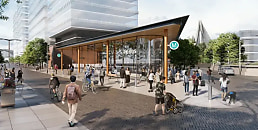Residential construction costs are expected to keep rising through 2025, placing further strain on the federal government’s national target of 1.2 million new homes by 2029.
Cotality’s latest Cordell Construction Cost Index has revealed that residential construction costs rose 0.5 per cent over the June quarter, gathering pace from the 0.4 per cent increase during the March quarter.
The company’s research director, Tim Lawless, said that quarterly increases to home building costs over 2025 have still tracked below the pre-COVID-19 decade.
“Growth in residential construction costs has increased a little compared to the previous quarter; however, when compared to the long-term average, the increase is tracking at half the pre-pandemic decade average of 1 per cent,” Lawless said.
Cotality’s data also showed that residential construction costs increased by 2.9 per cent over the 12 months to June 2025, marking an increase from the 2.6 per cent growth recorded over the 12 months to June 2024.
Lawless said the annual change in construction costs has still remained below the pre-COVID decade average of 4 per cent since the September quarter of 2023.
However, Lawless said the cost of new dwellings comprised the “largest weight” in the calculation of last month’s consumer price index (CPI) figures, and warned that a rise in construction costs could be imminent.
“The latest data reinforces commentary from last week’s RBA decision to maintain the cash rate at 3.85 per cent, which explicitly highlighted the reacceleration of growth in the cost of new dwellings via the monthly CPI indicator as a concern.
“Governor Michele Bullock noted that certain components of monthly inflation – particularly home building costs – had been ‘slightly stronger than expected’, which contributed to the decision to hold rates.”
In light of the RBA’s cautious stance, Lawless said that the challenges around elevated construction costs are set to continue over 2025, and hinder the sector’s ability to deliver residential housing.
“Builders are struggling with feasibility assessments amid a combination of high material and labour costs,” Lawless said.
“Higher construction costs remain a key blocker for getting more desperately needed housing supply into the market. High costs have eroded builder margins and contributed to the housing affordability crisis.”
Lawless also said the upward trajectory for construction costs will further jeopardise the federal government’s National Housing Accord target.
“With the cost of building a new home continuing to rise, the stretch target of building 1.2 million new homes by July 2029 is looking harder and harder,” he said.
The concerns are similar to those relayed by the Treasury, which was recently revealed to have advised the federal government that its goal of building 1.2 million new homes by 2029 “will not be met”.
CEO of the Real Estate Institute of Queensland, Antonia Mercorella, said the Treasury’s disclosure indicated the pressing need for a coordinated national strategy to accelerate housing delivery.
“These targets are just numbers until they are realised as homes,” Mercorella said.
“We want to see bold ambition – but it must be backed by practical, coordinated action and not just arbitrary numbers that make headlines but don’t result in enough homes being built.”
As part of such an approach, Mercorella called on the federal government to urgently address the workforce shortages and planning efficiencies that are hindering residential construction efforts.
“We’d like to see governments at all levels committing to reforming planning systems, investing in enabling infrastructure, and supporting the construction sector to meet real, achievable, and measurable housing goals,” she concluded.







You are not authorised to post comments.
Comments will undergo moderation before they get published.